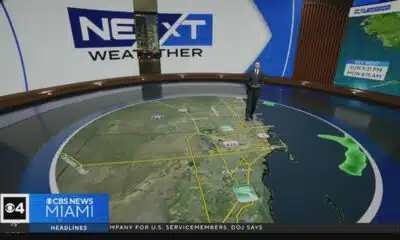News from the South - North Carolina News Feed
1st-ever South Asian TST team highlights tournament's global influence
SUMMARY: The 2024 Cary-based TST tournament underscores soccer’s global reach, highlighted by the first-ever all South Asian team, the Brown Ballers FC. Comprised of players from India and Pakistan, this groundbreaking team represents South Asian footballers from across the world, including the U.S., UK, and more. Founded five years ago to promote athletes from South Asia, the Brown Ballers aim to break barriers and inspire others. Players emphasize the significance of representing their heritage and growing the sport. With over $1 million at stake, the team hopes to make a lasting impact, showcasing talent while uniting a community eager to see them succeed.
Brown Ballers FC is the first-ever South Asian team at the 7-on-7 tournament, and fans are excited to see them at TST for the first time.
More: https://abc11.com/post/first-south-asian-tst-team-highlights-tournaments-global-influence/16650092/
Download: https://abc11.com/apps/
Like us on Facebook: https://www.facebook.com/ABC11/
Instagram: https://www.instagram.com/abc11_wtvd/
Threads: https://www.threads.net/@abc11_wtvd
TIKTOK: https://www.tiktok.com/@abc11_eyewitnessnews
News from the South - North Carolina News Feed
NC Courage wins 2-1 against Angel City FC
SUMMARY: The North Carolina Courage defeated Angel City FC 2-1 in Cary, ending their unbeaten streak. Monaca scored early at the 6th minute, followed by Bull City native Brianna Pinto’s goal at the 18th minute, securing a 2-0 halftime lead. Angel City intensified in the second half, scoring in the 88th minute, but the Courage held firm defensively to claim victory. Pinto expressed pride in the win, emphasizing the team’s unity and playoff ambitions. Nearly 8,000 fans attended. Coverage continues tonight at 11, alongside college football updates, including the Tar Heels vs. Richmond game live from Chapel Hill.
Saturday’s win was crucial for the Courage as the regular season starts to wind down.
https://abc11.com/post/north-carolina-courage-wins-2-1-angel-city-fc/17810234/
Download: https://abc11.com/apps/
Like us on Facebook: https://www.facebook.com/ABC11/
Instagram: https://www.instagram.com/abc11_wtvd/
Threads: https://www.threads.net/@abc11_wtvd
TIKTOK: https://www.tiktok.com/@abc11_eyewitnessnews
News from the South - North Carolina News Feed
Is nail gel actually harmful? It's complicated
SUMMARY: Gel nail polishes were recently banned in the EU due to the chemical TPO, which helps the gel harden under UV light. Concerns stem from studies showing potential reproductive risks in rats fed TPO, but humans aren’t exposed this way. The margin of exposure calculated for TPO is very high (1,515), suggesting it’s safe for people. More significant risks come from UV light used to cure nails, which may contribute to skin cancer over time. To stay safe, consider applying sunscreen before your salon visit and discuss toxin-free polish options with your aesthetician. Ultimately, balanced caution is key.
Certain gel nail polishes are no longer widespread in Europe as a chemical was banned due to potential health risks with long-term exposure. But a closer look at the study prompts some questions.
News from the South - North Carolina News Feed
What we know about Charlie Kirk shooting suspect, how he was caught
SUMMARY: Tyler Robinson, 22, from Utah, is in custody as the suspect in the shooting death of conservative activist Charlie Kirk at Utah Valley University. Robinson’s father identified him and convinced him to surrender after family members reported his possible involvement and negative comments about Kirk. Authorities believe Robinson acted alone. Investigators linked Robinson to the crime through Facebook posts and messages retrieved with help from his roommate. Robinson was arrested after fleeing the scene post-shooting. A rifle was found nearby. Charges are expected within three days. Officials praised coordination among police and government agencies in the swift arrest.
Authorities have taken into custody the person they suspect of shooting and killing conservative activist Charlie Kirk on …
-
News from the South - West Virginia News Feed6 days ago
Protesters in D.C. flood the streets demanding an end to Trump’s military deployment
-
News from the South - Virginia News Feed6 days ago
On the record: Winsome Earle-Sears
-
Mississippi News Video6 days ago
Interview: Come see Baptist at WTVA Senior Health Fair
-
News from the South - Missouri News Feed6 days ago
1587 Prime gives first look at food, cocktail menu ahead of grand opening in KC
-
News from the South - Arkansas News Feed6 days ago
‘One Pill Can Kill’ program aims to reduce opioid drug overdose
-
The Conversation6 days ago
How is paint made?
-
News from the South - Alabama News Feed5 days ago
Alabama lawmaker revives bill to allow chaplains in public schools
-
News from the South - Arkansas News Feed5 days ago
Arkansas’s morning headlines | Sept. 9, 2025








































